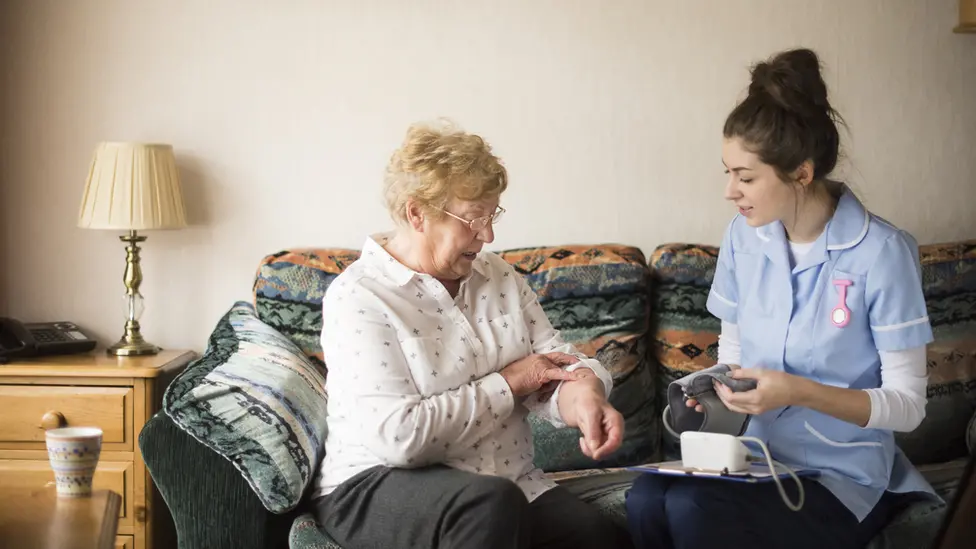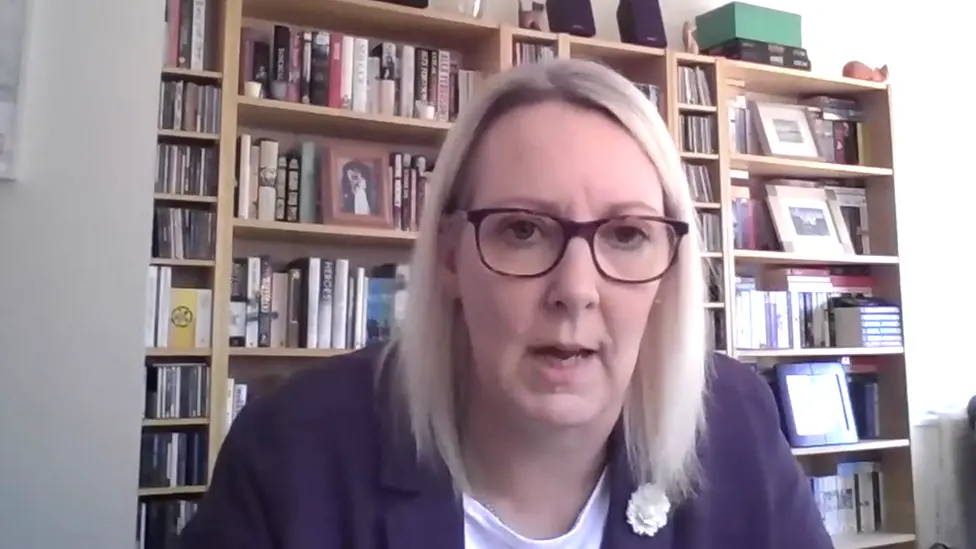Social care: Age Cymru calls for debate on funding
 Getty Images
Getty ImagesWales needs a national debate on how to fund the future of social care, according to the head of the country's biggest charity for older people.
Victoria Lloyd, chief executive of Age Cymru, said urgent reform of the social care system was essential to prevent people going without support.
First Minister Mark Drakeford said there would be announcements on social care in the coming months.
Although devolved, he said he intended to work on a four-nation approach.
"If this is a can the UK government continue to kick even further down the road, then the point will come when we will have to make our own decisions," he said.
Welsh Labour promised in its manifesto for last week's Senedd election it would "consult on a potential Wales-only solution" if the UK government did not bring forward proposals within the current parliament.
Tuesday's Queen's Speech made only passing reference to reforming social care, but the Secretary of State for Wales, Simon Hart, since said plans would be forthcoming "within months".
Ms Lloyd said the commitment was welcome but action to properly fund the system - and a discussion on how to do so - was needed now.

"We know we've got an ageing population, we know there are people that need care out there that currently aren't receiving it," she said.
"We need more funding in the system.
"There are many ways of doing that and I think what we need is a big debate in Wales about how we best do that fairly, transparently and to meet the needs of all of us.
"We think it's really important that the Welsh government acts as soon as they are able."
The Welsh government has made a number of reforms to social care in recent years, but has said a more wholesale solution to funding was a priority.
- The amount somebody can be asked to pay privately for care in Wales is capped at £100 a week, while in England there is currently no limit in place
- Domestic care recipients in Wales with savings or assets worth up to £24,000, or those in residential care with up to £50,000, are entitled to the maximum amount of local authority funding
- In England, those with more than £14,250 are required to contribute
Speaking before the election, Mr Drakeford said his government had its own plan "ready to go" on social care, but said the integration of the benefits system was problematic.
He told Politics Wales he would not give "just an arbitrary month" in terms of how long he was prepared to wait for the UK government to act.

The Welsh government has also previously pledged to ensure care workers receive at least the real living wage, £9.50 per hour, by the end of this Senedd term in 2026.
In the 2019-20 financial year, local authorities in Wales spent more than £653m on care for people over the age of 65.
In the same year, the overall council spending on social services exceeded £2bn for the first time.
A study carried out in 2017 estimated the amount paid out privately for care in Wales at more than £400m.
Siôn Jones, an economist who has researched social care funding options for the Welsh government, said wholesale reform was feasible, but costly.
"In the absence of any more money coming via the Barnett Formula to Wales [the mechanism by which UK government spending is allocated to the devolved nations], their main options are to switch expenditure from other parts of the Welsh budget, which is certainly possible, but difficult.
"It might be quite likely that if there was a shift in spending from somewhere else, it may well need to come from the health service," he said.
"We know there's always pressure for more expenditure in the health sector and there's currently pressure to pay health workers more, as well as care workers.
"Another option could be to raise general tax revenue through an increase in the Welsh income tax, which is possible, but obviously has political difficulties.
"The third option is to introduce some kind of specific tax or levy, that would raise funds specifically for care services.
"They're all feasible in principle, and they're all difficult from a political perspective".
Politics Wales is on BBC One Wales on Sundays at 10:00 BST and on the BBC iPlayer
